The Northern Studies program at UNBC emphasizes experiential learning, enabling students to apply theoretical knowledge to real-world northern contexts. Through interdisciplinary coursework, students engage in learning that explore the unique socio-economic, cultural, and environmental aspects of northern regions. UNBC's active membership in organizations like the University of the Arctic allows students to collaborate with peers and researchers across the circumpolar North. Additionally, partnerships with local Indigenous communities provide opportunities for immersive learning experiences that respect and engage with Indigenous knowledge systems. This hands-on approach equips graduates with practical skills and a comprehensive understanding of northern issues.
Student and Alumni Research
Community Vulnerability to Coastal Erosion and Flooding in the Canadian Arctic
Madeleine Fisher
MA Natural Resources and Environmental Studies
Committee: Dr. Tristan Pearce, Dr. Catherine Nolin & Dr. Stephanie Coulombe
Madeleine Fisher’s research will examine community vulnerability and adaptation to coastal erosion and flooding in the Arctic through a case study of the Inuit community of Kugluktuk, located in the Kitikmeot Region of Nunavut, Canada. Through semi-structured interviews, participatory mapping, and World Café workshops, this research aims to provide culturally relevant insights into local adaptation needs, supporting community-based resilience and informing long-term adaptation strategies that reflect Inuit perspectives.
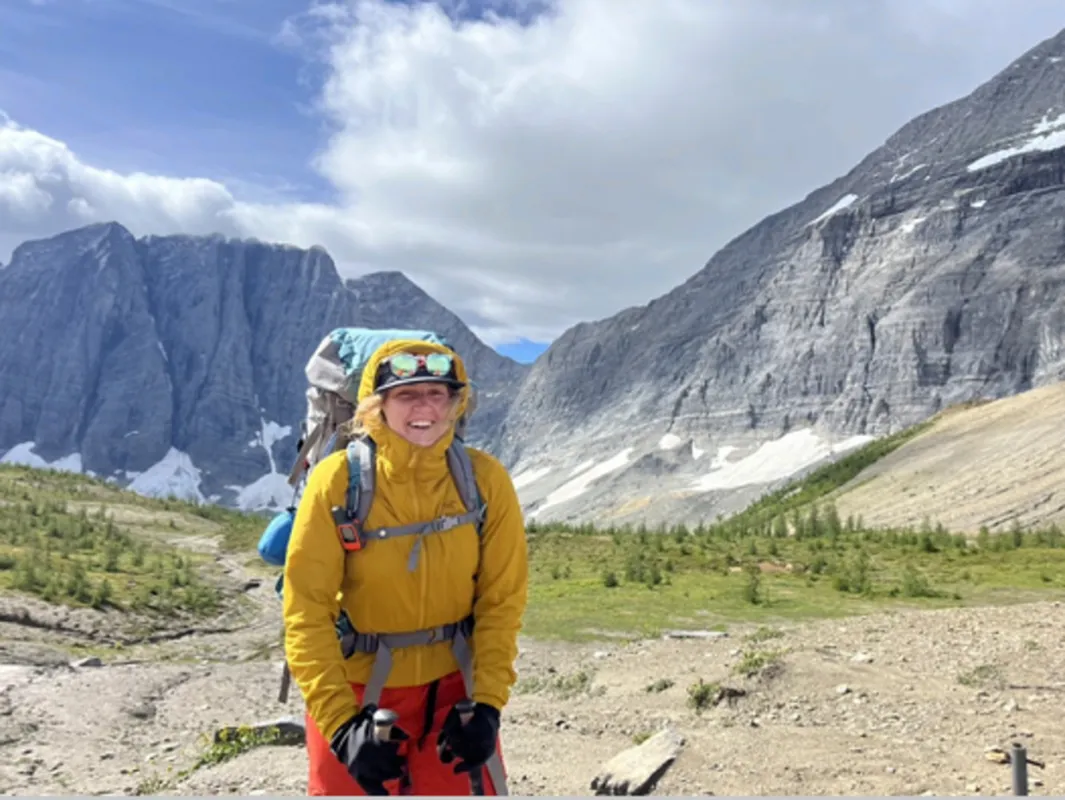
Community Vulnerability to Changing Snowpacks and Water Systems in the Robson Valley, British Columbia, Canada
Mackenzie Ostberg
MA Natural Resources and Environmental Studies
Committee: Dr. Tristan Pearce, Dr. Joe Shea & Dr. Jennifer Wigglesworth
Mackenzie Ostberg’s research focuses on identifying how the communities of Dunster and McBride, located in the Robson Valley, are exposed and sensitive to changes in the mountain snowpack and water systems and their capacity to adapt.
With a focus on qualitative research, this project links climate data with the lived experiences of local community members in the recent BC-wide drought. Her research is supported by the Pacific Institute for Climate Solutions (PICS)
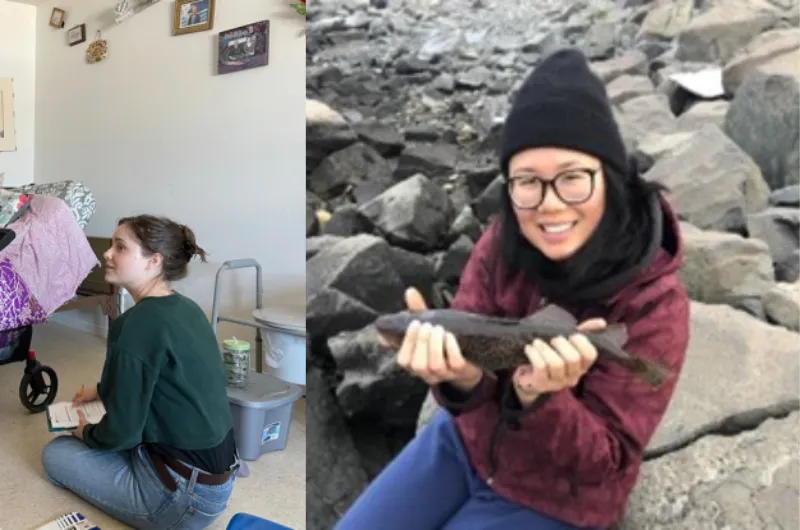
Knowledge Co-Production of Marine Species Movements in the Canadian Arctic
Halena Scanlon & Stephanie Chan
Natural Resources and Environmental Studies
Scanlon's Committee: Dr. Tristan Pearce, Dr. Lisa Loseto, Colin Gallagher, Dr. Neil Hanlon
Chan's Committee: Dr. Tristan Pearce, Dr. Lisa Loseto, Dr. Nigel Hussey, Dr. Harri Pettitt-Wade
Halena Scanlon and Stephanie Chan were both part of ArcticNet Project 33: Using Co-Produced Knowledge to Understand and Manage Subsistence Marine Harvests in a Changing Climate. This project sought to co-produce knowledge of marine species in the Canadian Arctic in partnership with Inuit.
Their research was based in Ulukhaktok, an Inuit community in the Northwest Territories. Both research projects focused on pairing Inuit and scientific knowledge to deepen our understanding of the ecology of two fish species, Greenland cod and Arctic char.
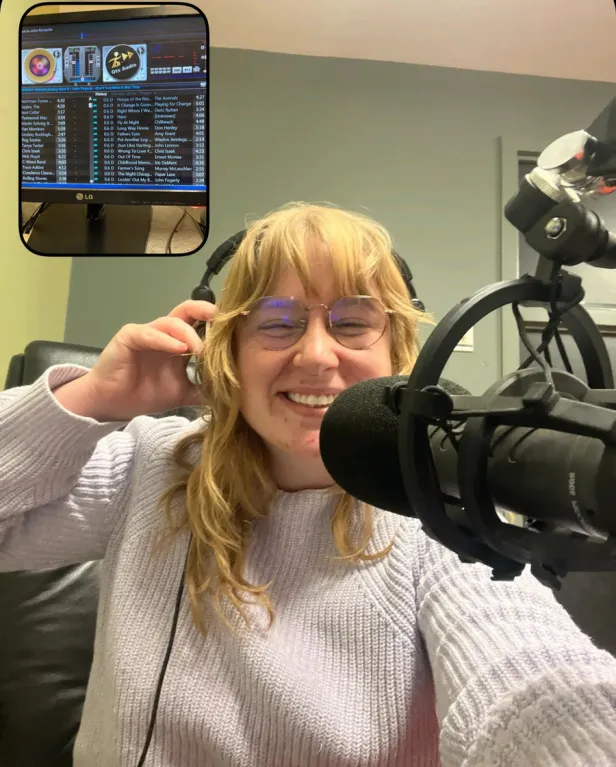
Community Engagement in Environmental Reclamation and Remediation in the Sahtu Region, Northwest Territories
Annie King
MA, Natural Resources and Environmental Studies
Committee: Dr. Tristan Pearce, Dr. Sinead Earley & Paul Dixon
Annie King is working as a Northern Community Engagement Specialist for the Land and Water Boards (LWBs) of the Mackenzie Valley. She has taken on the role of Project Lead for updating the LWBs’ Engagement Guidelines.
In October 2024, she spent time in the Sahtú community of Fort Good Hope conducting outreach, even speaking on local radio. From November 5–7, she attended the NWT All Boards Forum in Fort Smith, NWT, as a delegate for the Land and Water Boards of the Mackenzie Valley.
Students in the Circumpolar Arctic - Travelling Knowledges Program
Through the Travelling Knowledges program, UNBC students can take part in international field schools or other travel for course credit all over the world. The program provides financial support for domestic undergraduate students in any discipline for trips ranging from three weeks to one year. Students can use the funds to help pay for travel, living and academic expenses as well as costs related to childcare, travel documents and health insurance when participating in international field schools or individual travel related to course study.
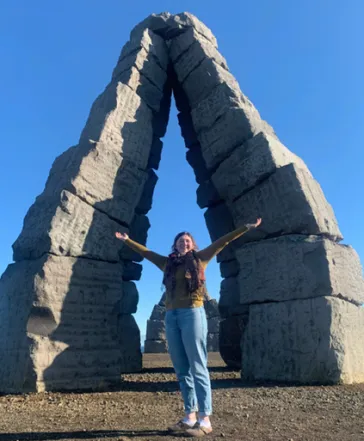
Taylor Coletti - Iceland and Norway
Taylor Coletti is a third-year human geography student pursuing an independent study supervised by Dr. Tristan Pearce and supported by the Travelling Knowledges program. Her travels have taken her from the Nordic worlds of Iceland and Norway to the Celtic influences of Ireland and Scotland. She also had the opportunity to explore themes of folklore and mythology and how they shape environmental attitudes and perceptions of place. She stated that “the chance to experience immersive, heuristic learning outside of a classroom has completely shifted my educational mindset and introduced new interests and lines of inquiry that I may never have encountered otherwise.”
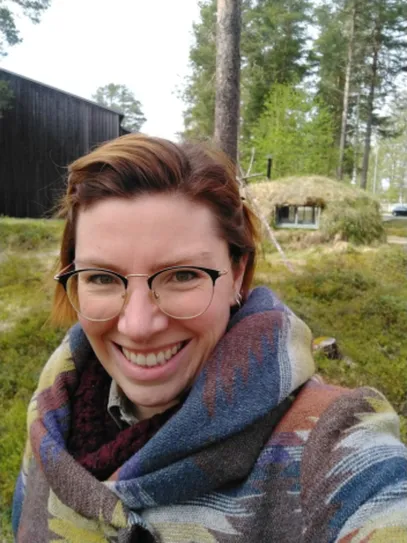
Julie Forrest - Sweden
Julie Forrest studied at Ájtte, a Sámi museum and cultural center, in Northern Sweden as part of the Travelling Knowledges program. She worked on an independent study (GEOG 499) supervised by UNBC professor Dr. Tristan Pearce, looking into the northward expansion of “green energy” (windfarms, mining) on Sámi lands. She also assisted the research unit at Ájtte in their search for collaborative planning tools for land use conflicts between Sámi reindeer herders and mining activity in the region.
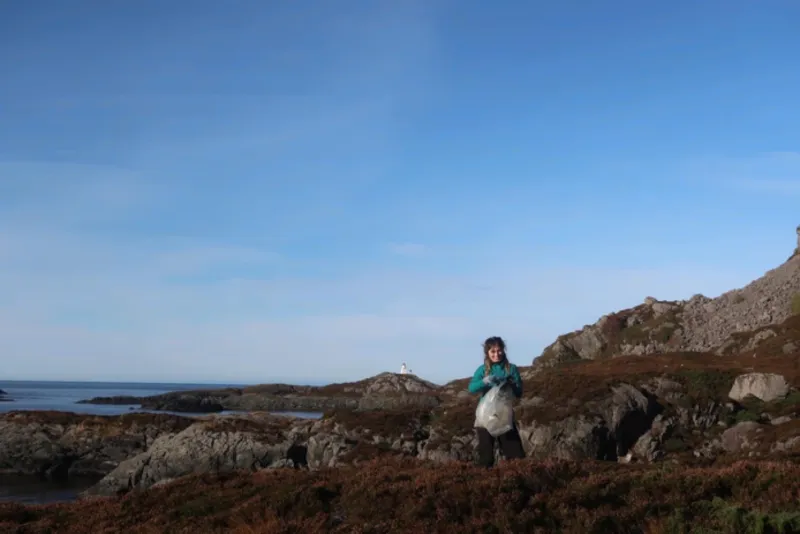
Madeleine Fisher - Norway
With the Travelling Knowledges program, Madeleine Fisher travelled to Sogndal, Norway for an independent study supervised by Dr. Tristan Pearce. While there, she worked as an intern at the Western Norway Research Institute, where she supported research for the SHIFT-PLASTICS project, which aims to create sustainable circular value chains for plastics used in the fisheries and aquaculture industries. For the project, she produced and presented a paper on Canadian policies regarding fisheries and aquaculture management, gained valuable first-hand experience working with fishers on the ocean, and collected plastic pollution. She travelled around the country, experienced the Arctic, made lasting friendships, and went on many hikes. She found working alongside researchers and policymakers while in Norway to be an incredibly inspiring and invigorating experience, stating that she returned home with a deeper understanding of herself, and what it means to be involved in research.